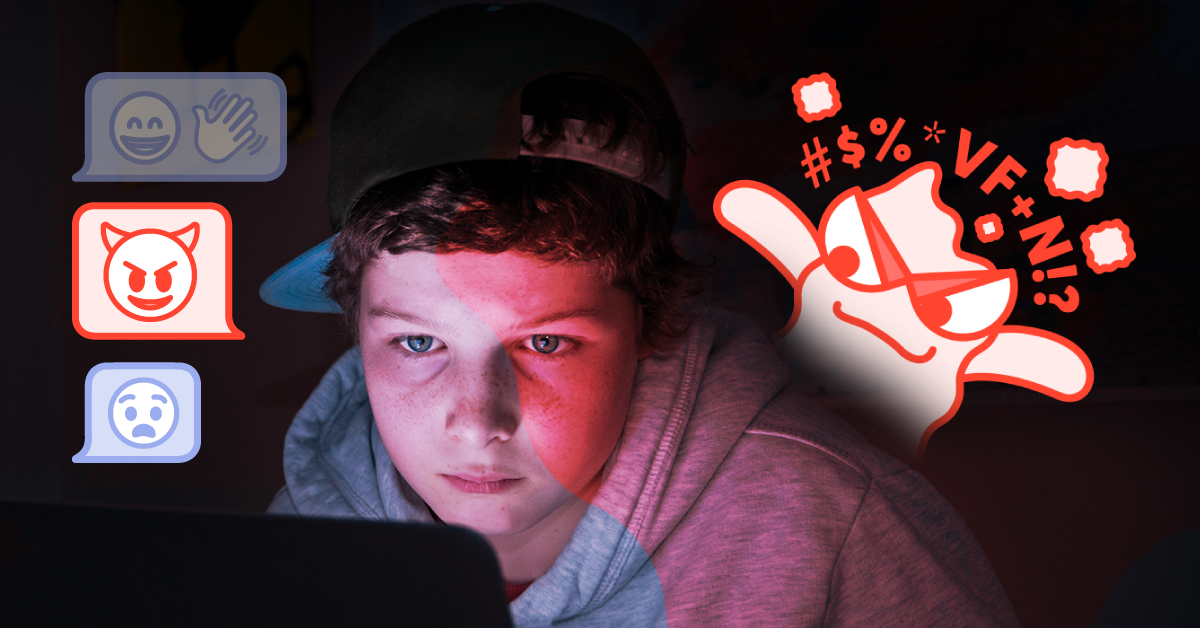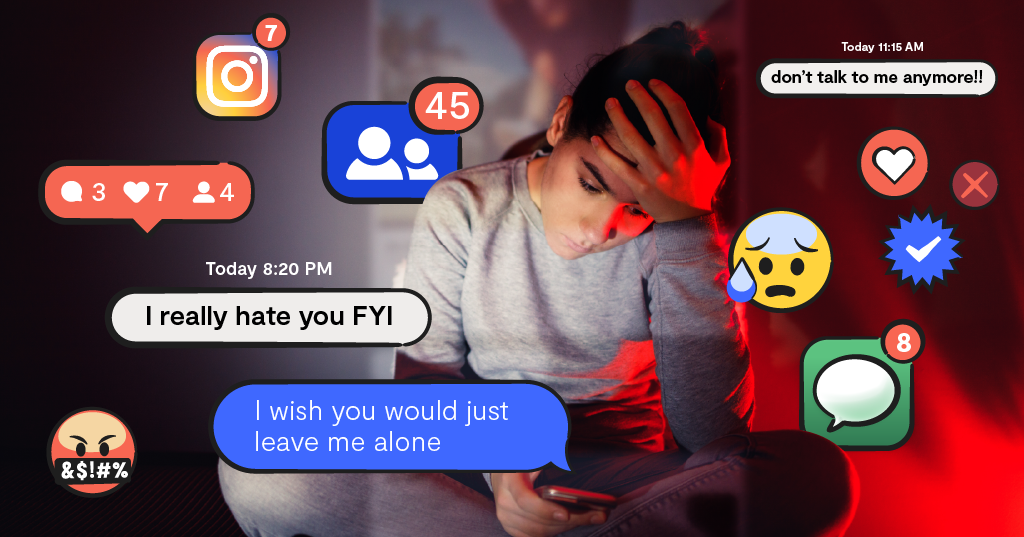
This National Bullying Prevention Month, we’d like to discuss the topic from a different perspective: what to do when it’s your child who’s doing the bullying.
It can be heartbreaking to realize this is happening. Parents can be left wondering how this behavior started and how they didn’t notice it sooner. At Bark, we know how stressful and upsetting this can be, which is why we’ve done some research on parenting a bully and what to do if your child exhibits bullying behavior.
Watching Our Language
When considering how to help a bully, it's important to use child-centered language. It’s crucial to remember that kids don’t bully because they’re “bad kids.” Kids are still learning and maturing until well after high school. Bad behavior isn’t a reflection of who they are as a person.
Because of this, it’s important to use child-centered language. Try not to refer to your child as a “bully.” Say that they “have bullied” or “are engaging in bullying behavior.” This way, it doesn’t become intertwined with the child’s identity. The same goes for recipients of bullying — say “the bullied child” instead of “victim.”
Why Kids Bully
There are many different reasons why relatively well-adjusted children may treat others antagonistically. It’s important to remember that kids aren’t as emotionally or intellectually developed as adults, so their actions may seem frustrating or irrational. Some of the common reasons kids bully include:
- Wanting to fit in
- Being bullied at home
- Looking for attention
- Being naturally more assertive
Signs Your Child Might Be Bullying
Sometimes, you know for sure that your child is bullying — especially if their school has contacted you or you’ve seen them do it in person. But If you’re not 100% certain whether your child is exhibiting bullying behavior and you're wondering how to help a bully, you may want to learn about these warning signs. Pay attention to whether your child:
- Often acts aggressively toward family, teachers, and other adults
- Demonstrates controlling behavior
- Is hot-tempered and gets easily frustrated
- Frequently tests boundaries or breaks rules
- Can easily talk their way out of difficult and tense situations
- Seems to have little sympathy towards others
Talking to Your Child About Bullying
If you discover that your child is bullying others (most likely news you’ll receive from another parent or a teacher), the most important thing to do is sit down and communicate. Listen to your child’s side of the story and see how they react. Stress that you love them, but that their bullying behavior will have to change, as it's a crucial aspect of parenting a bully.
Some kids may be able to articulate why they act in certain ways (to fit in, for example). Younger kids, on the other hand, may not know why they do the things they do. It’s important to emphasize that you love them and want to help them be a better friend.
How to Address Bullying Behavior
Parents, school staff, and community organizations can all help address bullying and ensure the behavior stops. Here are a few strategies to help curb bullying behavior:
- Make sure the child knows what’s unacceptable
- Take bullying seriously
- Uncover the reasons a child is bullying
- Teach empathy
- Demonstrate that there are consequences
- Model respectful behavior
If Your Child Cyberbullies
Schoolyard bullying in today’s generation still exists, but more and more often, harmful activity occurs online. Cyberbullying is quicker, easier, and can occur around the clock and from any location. In a previous blog post, we discussed just how different cyberbullying is from the bullying you may remember as a child.
Read more
Bark helps families manage and protect their children’s digital lives.






